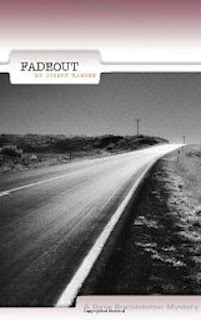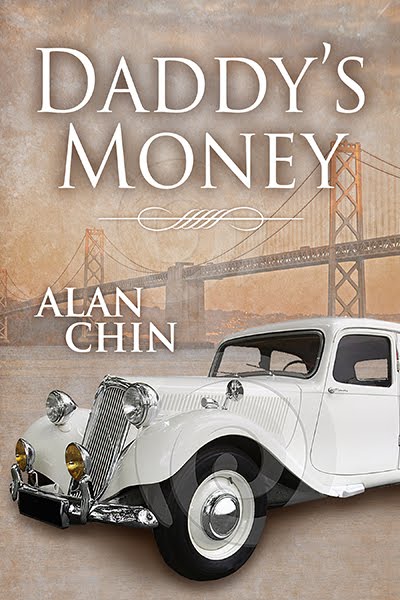Tuesdays are the days I showcase my own work on this blog.
Today, I thought it would be fun to post the first few paragraphs for each of
my published novels. I love beginnings, they set the tone for the rest of the
story. Here, then, are all my beginnings:
Daddy’s Money
He rolled over and nuzzled his pillow. Through the thin
membrane of his unconscious, he saw not the pillow, but mounds of coppery
flesh, sweaty and firm, and appropriately stimulating. He could not see a face
on this nameless form because he concentrated only on those luscious, satiny
curves. His lips sought out that moist crevice he knew would bring them both
the most pleasure. A smile creased his lips as he kneaded his face into white
linen, kissing its softness, inhaling the fresh scent of a spring morning, but
a noise drew his awareness up from the depths of his tantalizing vision. Beyond
the borders of his dream, barely noticeable but growing louder, he heard the
pulse of an alarm clock.
Butterfly’s Child
The musicians tuned their instruments for a Thursday night
performance. A mishmash of sounds ascended from the pit, underscoring the
audience’s expectant banter.
Cord Bridger settled into his usual seat, a mahogany desk
and chair known as a libretto table. There were only six in the Metropolitan
Opera House. They had no view of the stage, but rather crouched along the
balcony walls, three to the stage’s right and three to the left. Each desk
supported a low-watt lamp so the patron could read the opera’s score as the
performance played out.
Cord wore his usual evening attire: black Brioni suit, black
silk shirt, black tie, and his short black hair stuck out at rakish angles.
Only his pale face, thin fingers, and fatally blue eyes stood out in the
shadows.
Simple Treasures
In the faint flush of
predawn, a Kenworth sixteen-wheeler topped a ridge, forty miles east of Saint
George, Utah. With only a half load to hinder it, the rig barreled along the
interstate at twenty miles an hour over the speed limit. The driver hoped to
make Las Vegas in time for breakfast. The truck rumbled on, unrelenting.
Simple rode shotgun, staring
at a dusting of lights that looked like a pocketful of stars cast across a vast
and lonely mesa. The iridescent specks reminded him of flickering candles at a
funeral, although he had no memory of ever attending one, and he wondered if
that metaphor was some ominous sign of what lay waiting for him in Saint George.
He had stayed awake all
night, too excited to sleep. His eyes burned, and his mouth felt parched. He
wanted a drink, but his water bottle was stashed deep in the backpack that
rested on the floorboard, between his feet. Outside, the crowns of cottonwoods, tinged pink
with the coming dawn, appeared to be pasted upon a gunmetal-gray landscape.
With his peripheral vision, he saw the rearview mirror reflect beams of pale
orange light that now chased him across the mesa.
Match Maker
Connor Lin’s eyes grew large as the ball bounced short of
the service line and sailed into his strike zone. He drew his racket back while
planting his body in perfect balance; his arm swung, shoulders rotated, and his
racket arched up through the ball and continued into a follow-through. The ball
seemed to shriek from the impact as it sped bullet-fast toward the sideline. It
scorched a pale mark on the green court a half-inch from the white line. But
once again, it was the half-inch on the far side of the line. The lineman’s
hand flew up, and he yelled, “Out.”
Connor dropped his racket and blinked at the mark, obviously
not quite believing that he had lost another game.
The Lonely War
In the spring of 1941, the Japanese army surged across the
border from China to extend their bloody campaign to all of Southeast Asia. As
war crept south, the French, English, and American foreigners scattered
throughout Indochina hastened to Saigon, where they boarded ocean liners bound
for their homelands. Meanwhile, the Japanese army massed at the outskirts of
Saigon, poised for another victorious assault. The city held its breath as the
invaders prepared for the onslaught.
Andrew Waters pursued his father across a bustling wharf,
still wearing his boarding-school uniform and clutching a bamboo flute.
The ship that loomed before him was a floating city,
mammoth, with numerous passenger decks topped by two massive exhaust stacks
muddying the sky. It had berthed at the port of Saigon—an inland port on a
tributary of the Mekong—for a full week. Now, Andrew saw the crew scurrying to
get underway.
Island Song
A full moon rose from the sea.
Strands of light reached across the vast Pacific, caressing an old man’s face
as he sat in the bow of an outrigger canoe. The old man studied the moon until
it hovered above the horizon. He lifted an arm and signaled to move ahead.
Songoree, the young man in
the stern, dug his paddle into the dark water, driving the canoe through the
channel and beyond the mouth of Neue Bay.
A fresh wind drifted over the
bay from the northeast. It whispered as it flowed over the canoe and fell silent
as it swept back over the channel. The only other sound was the splash of the
paddle.
The old man signaled to halt.
Hope you enjoyed these
beginnings.






























.jpg)